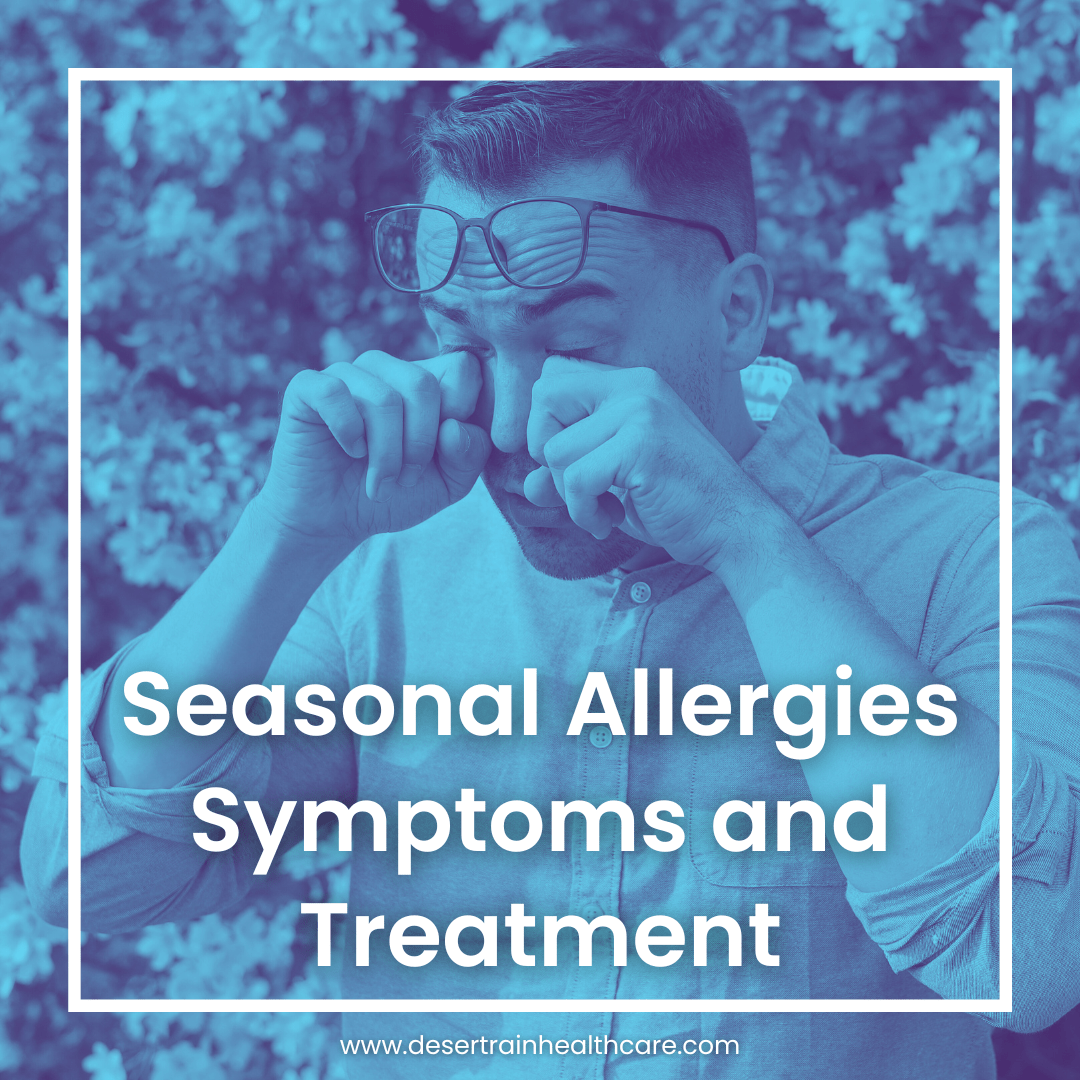Living in Arizona’s desert climate offers stunning landscapes and warm weather, but it also presents unique challenges, particularly when it comes to staying hydrated. The hot, dry conditions of Arizona make dehydration a significant health risk, especially during the long summer months. Staying properly hydrated is essential for maintaining overall health and is even more critical for those managing chronic conditions like diabetes, asthma, and heart disease.
At Desert Rain Healthcare in Glendale, Arizona, Nurse Practitioner Leslie Saeugling and her dedicated team are committed to helping you stay healthy and hydrated in this challenging environment. Whether through in-person visits or virtual telehealth appointments, Desert Rain Healthcare provides comprehensive care tailored to your needs.
Understanding the Health Risks of Dehydration
Dehydration occurs when your body loses more fluids than it takes in, leading to a deficiency in the water needed for essential bodily functions. In a desert climate like Arizona’s, the risks of dehydration are heightened due to extreme heat and low humidity, which cause your body to lose water more rapidly through sweating and evaporation.
The symptoms of dehydration can range from mild to severe and may include:
- Thirst: Often the first sign that your body needs more water.
- Dry mouth and throat: A lack of saliva due to dehydration.
- Dark-colored urine: Indicates concentrated urine, a sign that your body is conserving water.
- Fatigue and weakness: A lack of hydration can lead to low energy levels and muscle weakness.
- Dizziness or lightheadedness: Dehydration can cause a drop in blood pressure, leading to dizziness.
- Confusion or irritability: Severe dehydration can affect cognitive function and mood.
In severe cases, dehydration can lead to heat exhaustion or heatstroke, conditions that require immediate medical attention. Chronic dehydration can also exacerbate existing health conditions, making it especially important for those with chronic illnesses to stay vigilant about their hydration.
The Benefits of Staying Hydrated
Staying hydrated is vital for maintaining overall health, particularly in Arizona’s extreme desert climate. Here are some of the key benefits of proper hydration:
- Regulates Body Temperature: Water helps regulate your body temperature by enabling sweating, which cools the body. In the hot Arizona climate, staying hydrated is crucial for preventing overheating and heat-related illnesses.
- Supports Cardiovascular Health: Proper hydration is essential for maintaining blood volume, which helps your heart pump blood more efficiently. This is particularly important for individuals with heart disease, as dehydration can increase the risk of cardiovascular events.
- Aids Digestion: Water is necessary for digestion and helps prevent constipation. Staying hydrated ensures that your digestive system functions smoothly, reducing the risk of gastrointestinal issues.
- Improves Cognitive Function: Dehydration can impair concentration, memory, and overall cognitive function. Drinking enough water helps keep your brain sharp and improves your ability to focus.
- Enhances Physical Performance: Hydration is key to maintaining physical performance, whether you’re exercising or simply going about your daily activities. Dehydration can lead to muscle cramps, fatigue, and decreased endurance.
- Promotes Healthy Skin: Water helps keep your skin hydrated, reducing dryness and the risk of skin problems, especially in Arizona’s dry climate.
Tips for Maintaining Hydration in Arizona
Maintaining proper hydration in Arizona’s desert climate requires more than just drinking water when you’re thirsty. Here are some tips to help you stay hydrated:
- Drink Water Regularly: Aim to drink water consistently throughout the day, rather than waiting until you feel thirsty. Carry a water bottle with you to remind yourself to drink, especially when you’re outdoors.
- Eat Hydrating Foods: Incorporate water-rich foods into your diet, such as cucumbers, watermelon, oranges, and lettuce. These foods can contribute to your overall fluid intake and help keep you hydrated.
- Monitor Your Urine Color: Pay attention to the color of your urine as an indicator of your hydration status. Light, pale yellow urine typically means you’re well-hydrated, while darker urine suggests you need to drink more water.
- Limit Caffeine and Alcohol: Both caffeine and alcohol can contribute to dehydration, so it’s important to limit your intake, especially in hot weather. If you do consume these beverages, be sure to drink extra water to compensate.
- Adjust Your Hydration for Activity Levels: If you’re engaging in physical activity, especially outdoors, increase your water intake to match your body’s needs. This is particularly important for athletes or those who work outside in the heat.
- Use Electrolyte Solutions When Necessary: If you’re sweating heavily or engaging in prolonged physical activity, consider using electrolyte solutions or sports drinks to replenish not only water but also the essential salts and minerals your body loses through sweat.
Managing Chronic Conditions in Arizona’s Climate
For those with chronic conditions like diabetes, asthma, and heart disease, staying hydrated is even more critical. Dehydration can worsen these conditions and lead to serious complications.
Diabetes:
- Blood Sugar Control: Dehydration can affect blood sugar levels, making it more difficult to manage diabetes. Drinking enough water helps your kidneys flush out excess glucose through urine.
- Preventing Complications: Diabetic patients are at a higher risk for dehydration, especially in hot weather. It’s important to monitor your hydration levels closely and increase water intake as needed.
Asthma:
- Managing Symptoms: Dehydration can cause the airways to constrict, leading to increased asthma symptoms. Staying hydrated helps keep the airways moist and reduces the likelihood of asthma attacks.
- Avoiding Triggers: The dry air in Arizona can be a trigger for asthma. Drinking water can help mitigate this by keeping the respiratory tract hydrated.
Heart Disease:
- Supporting Heart Function: Proper hydration is essential for maintaining blood volume and ensuring the heart can pump blood effectively. Dehydration can strain the heart and increase the risk of cardiovascular events.
- Preventing Heat-Related Illnesses: Those with heart disease are more vulnerable to heat-related illnesses like heatstroke. Staying hydrated helps regulate body temperature and reduces the risk of these conditions.
Local Resources and Support Systems
Arizona’s desert climate requires a proactive approach to health, especially for those managing chronic conditions. Desert Rain Healthcare in Glendale, Arizona, offers a range of services to support your health and well-being in this challenging environment.
Nurse Practitioner Leslie Saeugling and her team provide personalized care to help you manage your hydration and chronic conditions effectively. Whether through in-person visits or virtual telehealth appointments, Desert Rain Healthcare offers comprehensive care, including diagnosis, treatment, and medication management.
If you’re struggling with hydration or managing a chronic condition in Arizona’s desert climate, Desert Rain Healthcare is here to help. We are currently accepting new patients at our Glendale office, located at 5721 W. Bell Rd, Suite 21, Glendale, AZ 85308. To schedule an appointment, please call our clinic at (623) 432-4263.
Conclusion
Staying hydrated is crucial for maintaining health in Arizona’s hot, dry climate, especially for those managing chronic conditions like diabetes, asthma, and heart disease. By understanding the risks of dehydration and taking proactive steps to stay hydrated, you can protect your health and enjoy life in the desert.
Desert Rain Healthcare is here to support you with personalized care and expert guidance. Whether you need help managing a chronic condition or simply want to ensure you’re staying healthy in the heat, our team is dedicated to providing the care you need. Contact us today to schedule your appointment and take the first step toward better hydration and overall health.








